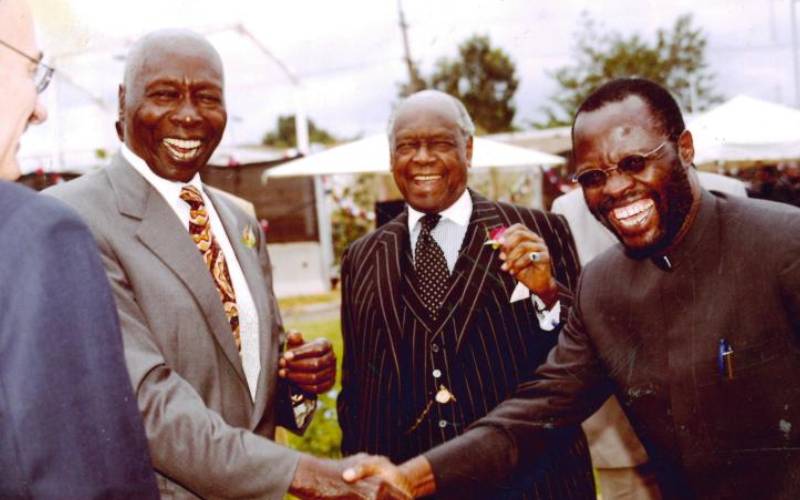×
The Standard e-Paper
Home To Bold Columnists

Former President Daniel Moi with former AG Charles Njonjo and then-Planning Minin Anyang' Nyongo at the US Embassy in Gigiri, 2004. [File, Standard]
Charles Njonjo died yesterday aged 101 years. The former hugely feared Attorney General, and later Minister for Home and Constitutional Affairs, hardly needs introduction.